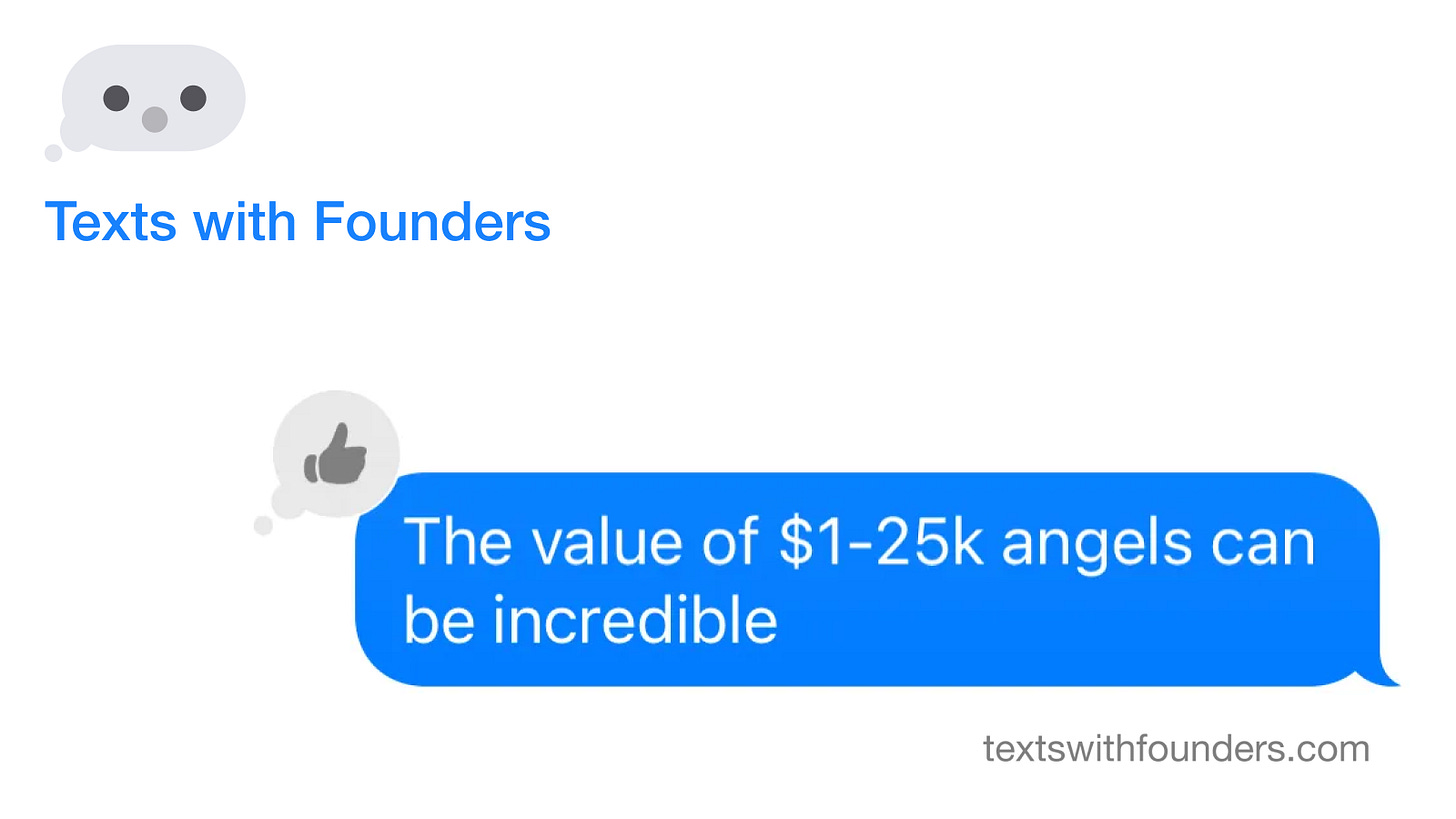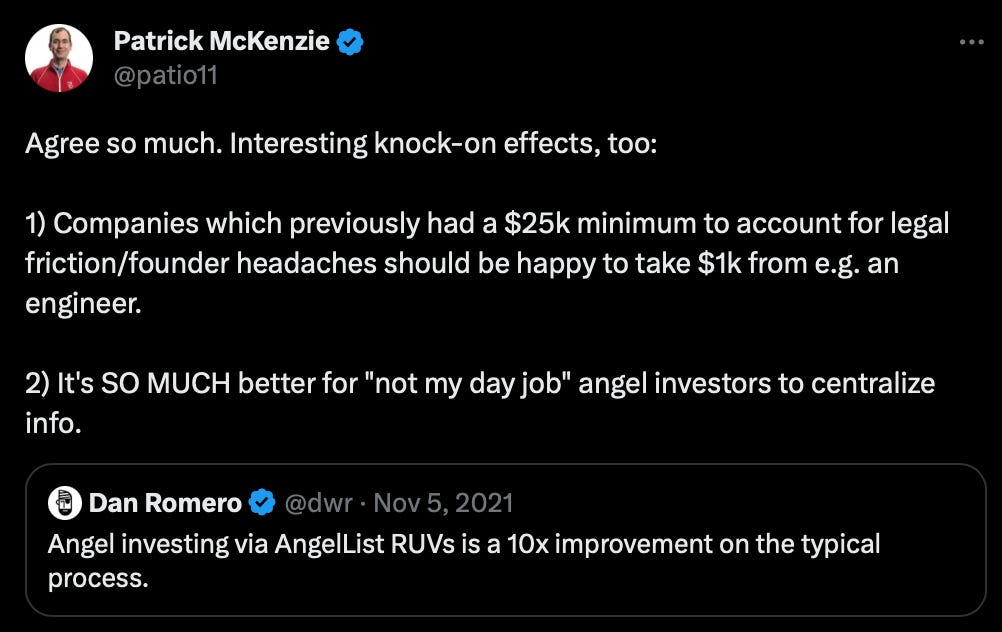Texts with Founders: Check Size Doesn't Matter
Forget minimum amounts and optimize for quality people
Welcome to Texts with Founders — tested tactics for early-stage startups. This free newsletter is designed to give an inside look at how I work with other founders.
If you’re exploring starting a company take a look at the upcoming cohort of On Deck’s Founder Fellowship.
One of the more common assumptions about fundraising is that you need to have a minimum check size. That minimum is often believed to be between $25k and $50k.
I'm unsure why the concept of a minimum check size is so persistent. I suspect one reason might be that the belief is a holdover from an era when it cost significantly more in legal fees to bring on new investors. Another reason might be the misguided belief that you should prioritize larger investors.
Today I plan to snuff out the idea of minimum check sizes for good.
Optimize for People
The best thing you can optimize for when fundraising is to get people with relevant expertise, network, and legibility on your cap table.
Expertise = They can help me in a particular area
Example: Ashley Mayer is world-class in communications
Network = They can introduce me to other investors, potential customers, or future teammates.
Example: Packy McCormick has incredible distribution via his newsletter
Legibility = their involvement will help in the areas mentioned above and positively impact how other investors view my company.
Example: Sander Daniels (co-founder of Thumbtack) investing in your marketplace startup tells potential lead investors that a savvy marketplace founder believes in what you're building.
The check size of an investor who can bring expertise, network, and legibility is relatively unimportant.
Don't just take it from me. Ryan Delk is the founder of Primer. He had over 25 angels in his seed round (which was led by Founders Fund):
Angels = Momentum
Readers of past posts might remember that I believe momentum is everything.
Most founders would be best served by focusing on angels (and small funds) to build momentum in the early days of their first fundraise. In fact, some of your smallest investors might introduce you to your lead investor.
The chart below from a startup called Freshpaint says it all: an angel that wrote a $5k check into the company. That angel then kicked off a chain of investor introductions that accounted for $700k. That's over 40% of the round. All because of a $5k check!
My goal when getting working with a startup is to always connect the founder with at least one other angel or fund that will invest. There are multiple instances where I've been able to introduce a founder to other investors that did >80% of the round.
Helpful angels understand how important it is to connect founders to additional investors—especially if they're investing at the start of the round. Most won't do it unless asked, though. Make sure to ask for intros and make it easy for angels to forward information about your company.
Cost is no longer an issue
Back in the day, bringing on new investors was much more expensive. The SAFE and RUVs have changed the economics of bringing on smaller investors via reduced legal complexity.
SAFEs = standardization of terms
RUVs = bundling of investors into a single line item on your cap table
I could write an entire post about RUVs, but Patrick McKenzie has already written some excellent tweetstorms about the cost savings and improved experience for investors and founders.
In a separate thread, Patrick also makes an interesting point about the benefits of bringing on engineers as small-check angel investors:
Literally every startup that adopts AngelList RUVs (and thereby trivializes adding users) should take $100k or so of allocation, set it aside, and happily give tiny slices to any (accredited) engineer/etc who wants in. Think: they pay you for an option on you hiring them later.
While I think RUVs are excellent (and I recommend AngelList), there's no need to over-optimize: if you think you'll only be bringing on a couple of small checks, it's not a big deal to do them as direct SAFE investments. Anything as low as $1k should be fair game for those you believe will be meaningful supporters of your startup.
Remember: optimize for getting the best people on your cap table regardless of investment amount.
Texts with Founders is entirely free.
If you feel these resources might benefit someone you know please text or email them about it—would love for this to be of service to even more founders.
- Julian
Recent Posts:
Avoid Hiring Too Early - Navigate external pressure focused on vanity metrics
Customers understand before investors do - And some investors will never understand
The Benefits and Downsides of Responsiveness - Where it can help and where it can backfire.
Raise the round behind you - Avoid a drawn-out process and optimize for the best investors.
Conditional Commitments - Why they aren't commitments and what to do about them.
Avoiding Gossip - Nimbly navigate an awkward scenario.
Handling Inbound From Investors - Avoid distractions and keep potential investors warm.
No identifying information is shared in texts.







Very well said!